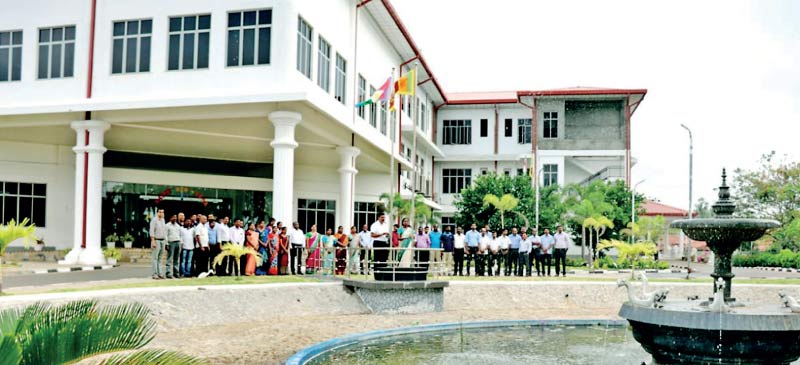Thursday Feb 19, 2026
Thursday Feb 19, 2026
Monday, 28 October 2024 00:37 - - {{hitsCtrl.values.hits}}

Arguments that the provincial council system is too costly and burdens the country with an unnecessary tier of government are not relevant to its purpose
By The National Peace Council
In his election manifesto, as well as in his election campaign, President Anura Kumara Dissanayake pledged to take forward the national reconciliation process through several measures, including implementation of the 13th Amendment. His election manifesto commits the Government to conduct provincial council elections within a year “to provide an opportunity for the people to join the governance.”
The provincial council system was established in 1987 as part of the peace process agreed with the Indian government to resolve the ethnic conflict. The significance of the provincial council system is that it permits the Tamil and Muslim communities, who are a majority in the Northern and Eastern Provinces, to have decision-making authority in those parts of the country by electing those who will be making decisions in the province. Similar systems of power devolution are to be found in most successful countries, including India and Switzerland, to which Sri Lanka was compared with at the time of its Independence.
The National Peace Council believes that the centralised system of government inherited from the departing British colonial rulers has prevented effective power-sharing between the ethnic majority and minorities. Centralised governance has also created vast economic disparities between the capital territory and the provinces. This has led to large segments of the population being economically marginalised and politically disempowered. We need to proceed to “system change” that includes power devolution.
The President’s recent advice to the governors and officials of the Provincial Councils to be more effective in their work is commendable but does not deal with the issue of elected provincial councils where the people’s representatives make decisions and not the President’s representatives. The governors are directly political appointees of the President. Arguments that the provincial council system is too costly and burdens the country with an unnecessary tier of government are not relevant to its purpose. NPC points this out as some of the recent statements by governmental authorities seem to lose sight of the purpose of provincial council system and its role in addressing the ethnic conflict.
NPC congratulates President Dissanayake on his election victory. We wish him the best and stand ready to support his right-minded efforts to develop the country to be a prosperous and thriving one in accordance with his election manifesto. We also call on him to demonstrate commitment to the national reconciliation process which would make this pledge a reality to all people of all communities living in all parts of the country.